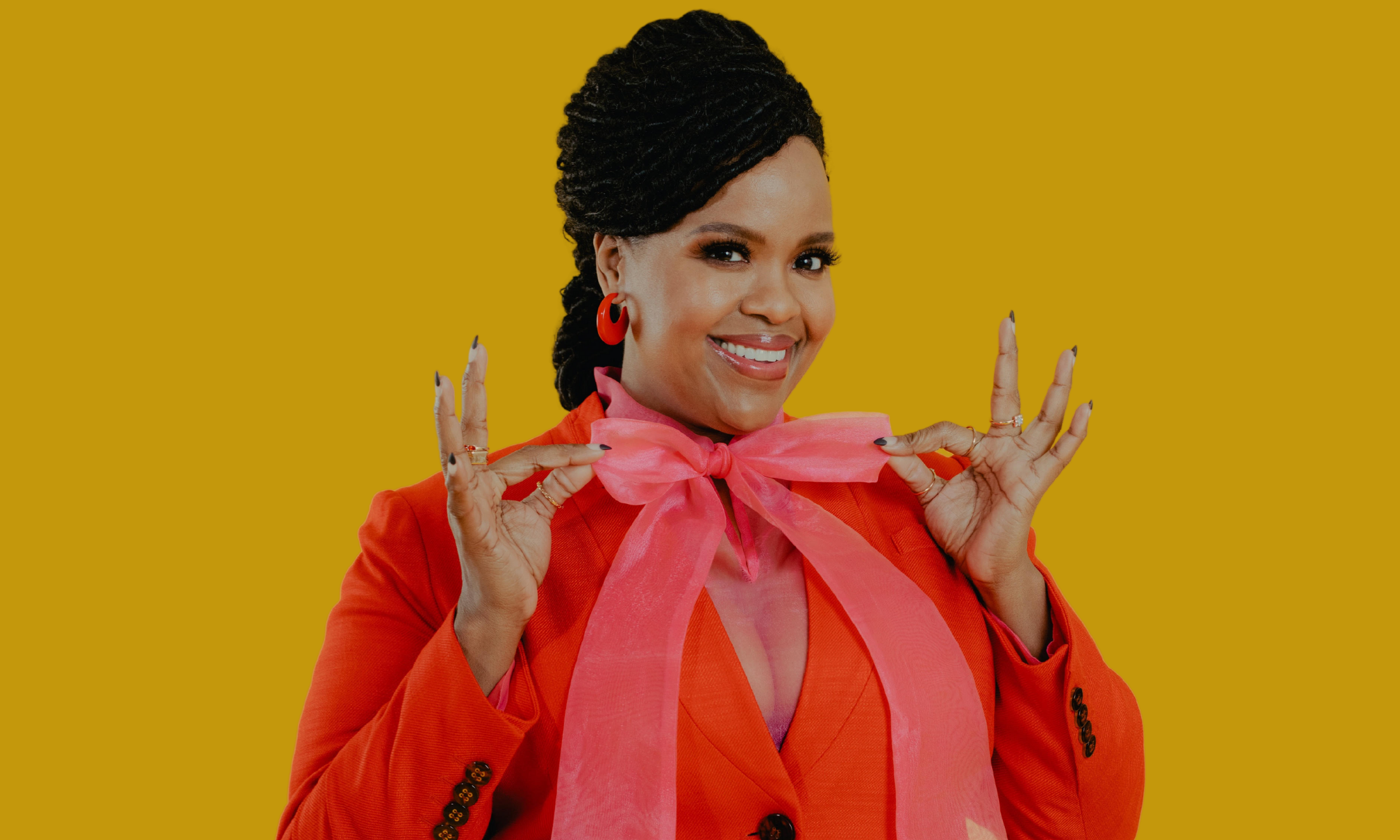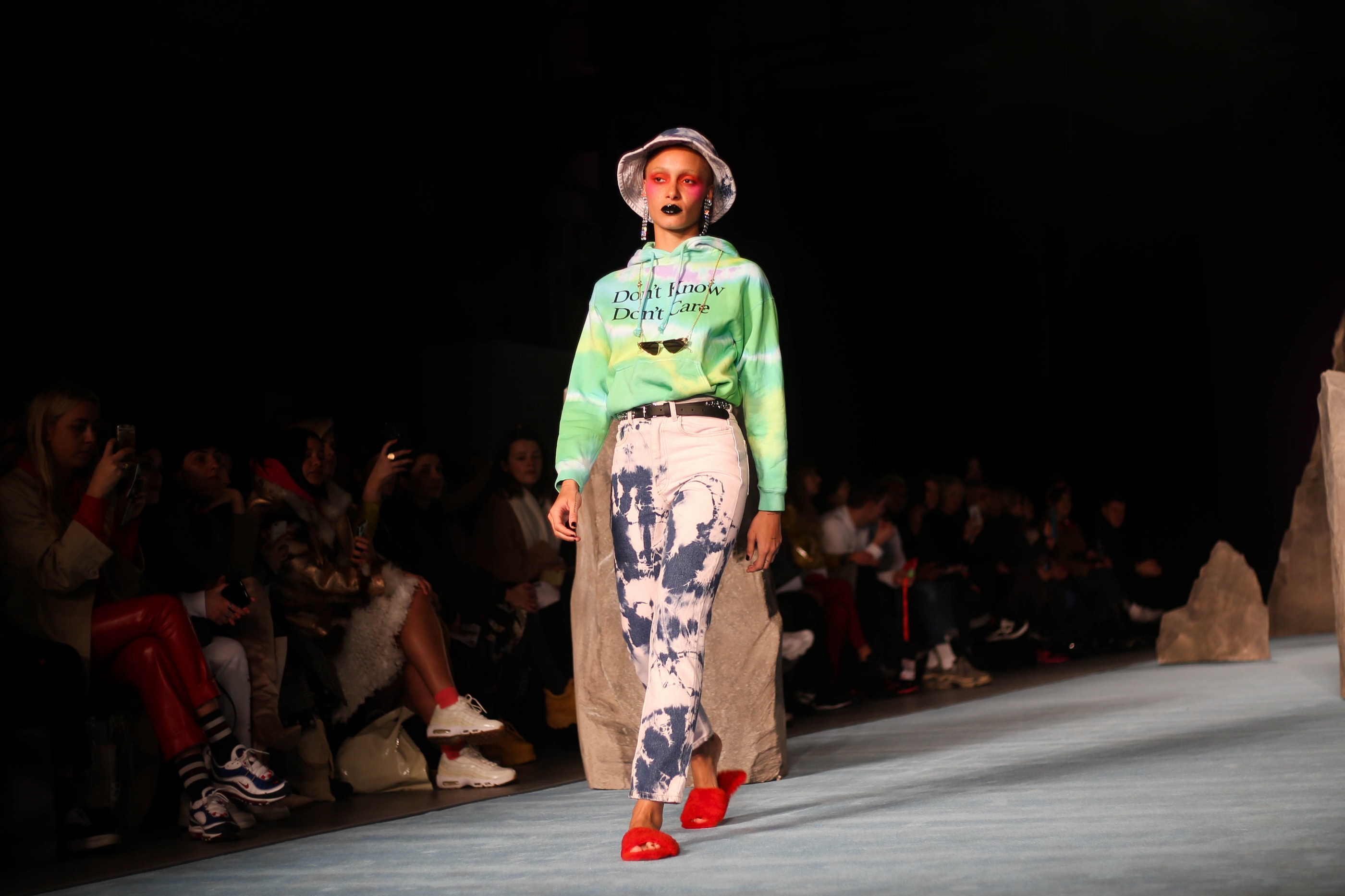
Natasha Rothwell: “People want to hang their experiences as a plus-size black woman on me”
Insecure's funniest actress on rejecting the pressure to represent all and defiantly carving out your own voice.
Adwoa Darko
30 Nov 2021
Played expertly by Natasha Rothwell, Insecure’s Kelli is without a doubt the funniest character in the HBO show. In addition to working behind the camera as writer and director, Natasha has been stealing scenes from Season 1 with her performances. I still cackle at her one-liners, when she got tased at Coachella and who can forget the time she pretended to be British to cop a man.
It’s exciting, therefore, to sit down with Natasha in the UK (of course I force her to do that accent, and she obliges). She’s currently in London filming the new Wonka movie with Timothée Chalamet. From new shows in the works with HBO and ABC, to her performance as Belinda in the critically-acclaimed The White Lotus, 2021 has certainly been Natasha’s year.
She’s in denial, however, at the prospect of saying goodbye to Kelli and Insecure. “I’m right along with the audience that I really can’t believe it’s coming,” she laughs. “It’s been such a joy to bring her to life and it feels very surreal. But I’m also so excited for folks to see the season unfold. We feel we’ve done right by the characters in the story.”
As a plus-size Black woman, I have always been sensitive to the portrayals of characters that look like me on screen. Looking at portrayals in iconic shows like Moesha, I was disappointed by the treatment of Countess Vaughan’s character Kim. Subject to rampant fatphobic misogynoir, Kim is the butt of far too many jokes, with no nuance to her character beyond a caricature. All too often, lazy writing intersects with anti-fatness and misogynoir. It renders plus-size Black women into two-dimensional characters; the most prominent of these being the “sassy sidekick’. With her quick one-liners and unwavering loyalty, she is rarely granted a meaningful story of her own, or any analysis of who she is outside of her care and support for thinner, lighter, or whiter characters. Largely a foil for comedic relief, she is hypersexual and man-thirsty, her weight and insecurities used to boost the status of the main character. See also Dijonay in The Proud Family, most of Mo’nique, Queen Latifah and Octavia Spencer’s earlier roles, plus far too many Disney and Teen Netflix shows to count.
At times, this criticism has been levelled at Natasha’s portrayal of Kelli, who, unlike other secondary characters, had yet to have any exploratory backstory in four seasons of the show. Natasha disagrees. “I think that Kelli is very much a character and not a caricature,” she says.
The comedic actress adds: “She’s very consistent. She’s body positive. She rides for her friend but she’s never self-deprecating. She is not the punchline of her jokes – she’s in control. I think those are some really key differences to that trope that I think people are wanting to lump Kelli into.”
She views the hunger for more Kelli backstory as a “call to arms for writers” to create a multitude of big Black women with complex lives. While she’s “not offended” by the online discourse surrounding her character, she does feel like it’s “unfair”.
She adds: “It is a lot of weight for any show to carry when they are the only one tackling the humanity of people. People want to hang their experiences as a plus-size black woman on me.”
Regardless, the first episode of the finale season seems like an ‘I hear you’ moment to fans. At their ten year reunion, Kelli realises she has been wrongly assumed dead by her classmates, much to the hilarity of her friendship group. What starts off as seemingly another Kelli joke, quickly reveals itself to be a far more reflective moment for the show, in which the character sighs “Y’all are missin’ the point. As always. Is everything I do a joke to y’all?” Profoundly, this moment served as metacommentary; both within the universe of the show and to us as fans, the catalyst to exploring a more nuanced Kelli, beyond the ‘joke’ persona we have seen so far.
The heated discussion is a visible symptom of how Black audiences across the globe have become invested in the show. Why does she think that the diaspora has resonated with Issa Rae’s vision for Insecure?
“Its emphasis was not trauma, drama or pain. It was about being just decidedly regular, average and figuring it out. Everyday victories aren’t conquering lands or fighting an army, it’s getting a job, finding a man. It’s a celebration of that extraordinary ordinary stuff.”
Key to the show’s appeal is its legacy of showing a myriad of Black characters. From Issa, the struggling creative and Molly the middle-class lawyer, to an ensemble spanning the spectrum of Black representation. For our audiences, it is refreshing to see Black characters and stories beyond the tropes.
Natasha reflects upon her own experience of being pigeonholed. “When I was at university studying theatre, I learnt that I must advocate for myself,” she explains. “Commercial directors would come at me with many euphemisms to say ‘be more black’. I think it is up to us to play the parts with integrity and not feel as if we are cashing a check that someone else wrote.”
She still feels the external desire to confine her, even at this point in her career. “Even when audiences saw White Lotus, they were surprised that this is the same woman who played Kelli – that just speaks to the sort of habitual inclination in history to want to define us.”
Throughout our conversation, it is apparent to me that she is a student of comedy; not only is she hilarious, but her humour is underpinned with deliberate scholarly intent. She’s spoken previously about her obsession with David Brent and aspirations to bring her comedic talents to SNL. At a time in which the dominant conversation in the media is the relationship between comedy and the protection of marginalised groups (we’re looking at you, Dave Chapelle). How does she feel about the ‘right to offend’ discourse?
She pauses. “I’ll just speak to my comedic philosophy, which is always to speak truth to power – punch up and not punch down. And so comedy that is antithetical to that, it’s hard for me to see what’s funny.” She is thoughtful and speaks measuredly, quoting George Saunders’ definition of comedy about humour being the truth told quickly.
She adds: “If your truth is flawed, or you have a singular vision, you’re going to have trouble with the comedy piece. It is important for us as sort of bearers of truth, to walk that line, and to do so with purpose and integrity.”
Herein lies the magic of Insecure, and also Natasha’s charm. We each can see ourselves within the humour and rarely does it come at a cost to marginalised voices. Thanks to them we have a whole new template for inclusive laughs and feel-good dramedy for a new generation. While the show will be sorely missed, it’s clear its creators, including Natasha, are just getting started.
The final season of Insecure is now streaming on HBO Max, Now TV, and Sky.





